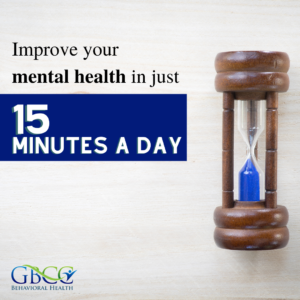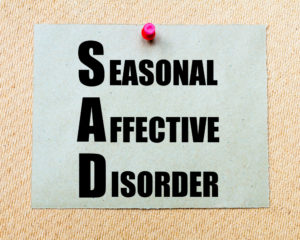What is CBT?
If you’ve ever done an internet search for a talk therapist or counselor, you may have seen a lot of them list, “Cognitive Behavioral Therapy,” or, “CBT” as a speciality or service provided. If you never studied psychology, you may have even wondered, “What is that and is it something I need?”
Cognitive behavioral therapy is a type of talking therapy that has been widely used to treat mental health disorders or emotional concerns since the 1950’s. The purpose of this form of therapy is to identify and challenge thoughts that are unhelpful to one’s mental well-being, and then provide alternative thinking patterns and behaviors to help improve the way patients think and feel (Klearminds, 2022).
The goal for patients entering into CBT is to improve their quality of life not by changing their circumstances of their day-to-day challenges, but to empower them to take control of the perception of those challenges, and then create new ways of thinking and feeling about them.
History of Cognitive Behavioral Therapy

Albert Ellis was an American psychologist who helped pioneer and develop what is now modern cognitive therapy. His work in the 1950’s was based on the idea that a person’s emotional distress arises from their thoughts about an event rather than the actual event itself. Ellis was one of the first to correlate and analyze how irrational beliefs and generalized pessimism led to human misery and dysfunction (Univ of Birmingham, 2021).
A few years after Ellis, American psychiatrist Aaron T. Beck looked deeper into “thought distortions.” He researched whether holding negative views about self, others and the world, might be part of the reason somebody was depressed. Beck saw an even more direct link between thoughts, feelings and behaviors, and he discovered that although people aren’t always initially aware of negative thoughts, they can, in fact, learn to identify and report them. He found that people who were depressed had negative thoughts that tended to be unrealistic, and by uncovering and challenging these thoughts, long-lasting and positive changes could result (Beck Institute, 2022).
Working with a Cognitive Behavioral Therapist
CBT can be extremely effective ― either alone or in combination with other therapies ― in treating mental health disorders, such as depression, anxiety, phobias, sleep disorders, post-traumatic stress disorder (PTSD), an eating disorder, and more. But not everyone who benefits from CBT has a mental health condition. CBT can also be an effective tool for anyone who wants to learn how to better manage stressful life situations.
Mental health counselors (psychotherapist or therapist) specializing in CBT work with patients in a structured way, to help them become aware of false or negative thinking. Then, they will work with the patient on different ways to view challenging situations more clearly and how to respond to them in a more effective way.
CBT generally requires fewer sessions than other types of therapy, and patients are able to use the tools they learn in therapy and apply the concepts to coping with new problems as they arise.
Setting Expectations for CBT
Patients who want to explore CBT should go into the treatment with an open-mind and an awareness that while situations may be immovable, their thoughts and feelings can change. Understand that CBT can help you develop more realistic expectations about yourself, others and the world – which can create real lasting peace and long-term fulfillment.
A big component of CBT is being able to recognize the importance of flexibility in our ideas and expectations. Patients starting treatment should be prepared to consider the worst-case scenarios, but also recognize that they will survive. Patients who are successful in treatment will find that they have more awareness of strong, negative emotions, and then, in the future, be able to reflect on the unrealistic expectations that may have caused them.
CBT can be very useful for addressing a litany of emotional challenges, such as coping with grief or loss, learning to cope with a medical illness, managing chronic physical symptoms, overcoming emotional trauma from abuse or violence, and resolving relationship conflicts (Mayo Clinic, 2022).
In some cases, CBT is most effective when it’s combined with other treatments, such as antidepressants or other medications.
Interested in speaking with a therapist who specializes in cognitive behavioral therapy? Contact us today.
Sources:
https://www.mayoclinic.org/tests-procedures/cognitive-behavioral-therapy/about/pac-20384610
https://www.birmingham.ac.uk/schools/psychology/centres/rebt/about/beliefs.aspx
https://www.klearminds.com/blog/history-cognitive-behavioural-therapy-cbt/
www.beckinstitute.org











